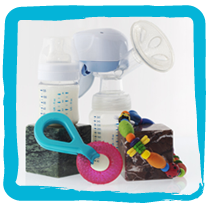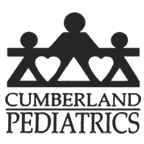Breast Feeding & Lactation
Did you know?
- Breastmilk contains special disease-fighting antibodies (not found in formula) to help keep your baby healthy.
- Your breastmilk in made specifically for your baby! For instance, if your infant is born early, your breastmilk will contain more protein, fat, calories and various minerals than someone who is nursing a full term infant.
- It is not how long your infant nurses but how frequently that determines the amount of milk you make.
- The American Academy of Pediatrics recommend that babies be exclusively breastfed for the first 6 months of life and research shows strong evidence that this can reduce instances of a wide range of infectious disease, obesity, SIDS and possibly future allergies.
- Breastfeeding can also have advantages for mothers including decreased postpartum bleeding, decreased risk of breast and ovarian cancer and earlier return to pre-pregnancy weight.
How do I know that my infant is getting enough nutrition?
- A newborn should be feeding on average 8-12 times (at least every 2-3 hours), have 6-8 wet diapers daily and be gaining weight.
- Mothers should offer both breasts with each feed, approximately 10 minutes or more on each side, to encourage adequate intake and also stimulate milk production.
- Mothers should continuing taking prenatal vitamins as long as they breastfeed and follow the same guidelines for healthy eating as they did during pregnancy. They should also drink 8 glasses of water, juice or milk daily. On average, breastfeeding requires an extra 500 calories per day.
- Mothers should abstain from smoking and alcohol as well as limit caffeine intake while breastfeeding. In addition- ask your healthcare provider prior to taking over the counter medications as they may affect your breastfeeding baby.
- Cumberland Pediatrics recommends seeing your full term newborn upon discharge from the hospital, at 2-3 weeks and again at 1 month to monitor weight gain/growth, breastfeeding progress and answer any questions you may have about feeding.

Resources
Visit the following websites to learn more about breastfeeding and lactation.

Best for Babes - Beating the booby trap that prevent moms from acheiving their personal breastfeeding goals.
WomensHealth.gov - Office on Women's Health, US Department of Health and Human Services
La Leche League of Georgia - Helping mothers worldwide to breastfeed through mother-to-mother support, encouragement, information, and education.

![Quote for [VAR_PRACTICE_NAME]](images/quotes/miracle-quote.png)